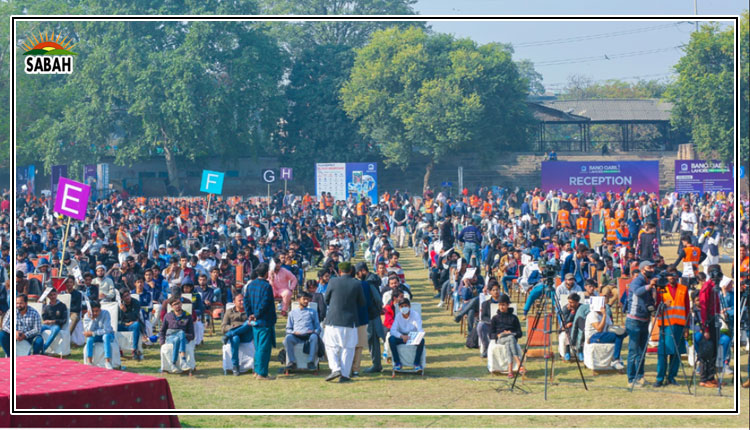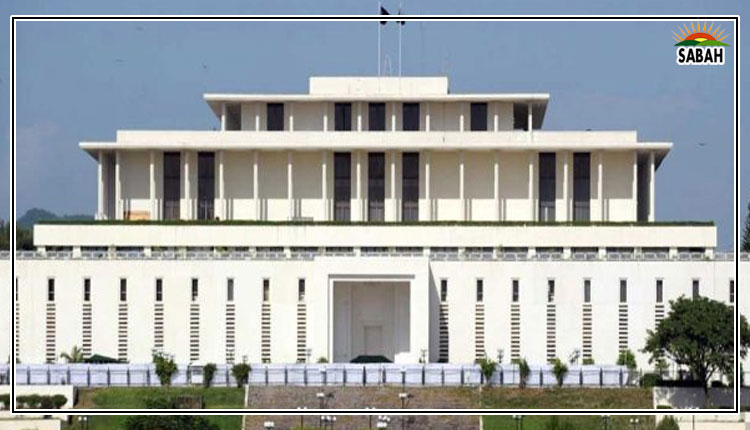Pardon the poultry … Shahzad Sharjeel
SURPRISINGLY, while we have cherry-picked parts of globalisation like Black Friday sales and Valentine’s Day celebrations, we have yet to get on to the Thanksgiving bandwagon. Before anyone accuses us of mindlessly ‘mimicking the West’, we have adapted these traditions with a local twist; we localised Black Friday as Blessed Friday, and lads send red roses and chocolates to their moms as per our version of Valentine’s Day. Actually, we observe so many black days that this legally teetotalling country can technically be black-labelled.
While the tradition of pardoning the Thanksgiving turkey is traced to Abraham Lincoln in 1863, granting a pardon or clemency for crimes against the US is said to have preceded it. George Washington exercised this power on Nov 2, 1795, when he pardoned two men sentenced to be hanged in the Whiskey Rebellion. It is interesting to note how little is known about this event in American history compared to the Boston Tea Party, though both concerned taxes on beverages. The former concerned levies on distilleries owned by small farmers, while the latter concerned the tea tax imposed by the British parliament on the colonists in Massachusetts.
Returning to pardons, among the more infamous recipients is Richard Nixon, whom Gerald Ford pardoned for any crimes he might have committed during the Watergate scandal. This instance also stands out as a pre-emptive pardon because Nixon was not charged with or convicted of federal crimes. He had stepped down in the face of an impeachment by Congress. George H.W. Bush also granted a pre-emptive pardon to former secretary of state Caspar Weinberger and former CIA official Duane Claridge in the Iran-Contra affair in 1992.
Joe Biden, the outgoing US president, among his last acts of charity — remember, it begins at home — has pardoned his son Hunter, who was embroiled in tax evasion and illegal weapons cases. To lessen the burden of nepotism, he has commuted the sentences of almost all death-row convicts in federal prisons.
Donald Trump, the president-elect, may use this power to pardon scores of Jan 6, 2021, insurrectionists who planned to take over the nation’s capital in their refusal to accept the election results in favour of the Democrats. The US constitution does not expressly grant immunity to the president in civil or criminal cases. However, to make up for this sad oversight by the founding fathers, they can pardon anyone, including themselves, of any crime other than impeachment by Congress.
We should adopt Thanksgiving, if for nothing else than the presidential tradition of pardoning the turkey. How long would we pardon the sacred cows only? Isn’t it time we spared the ‘poultry’ little guys, the citizens?
Article 45 of the Constitution of Pakistan vests the power to pardon in the head of state. Whether this power is absolute or not is occasionally raised before the courts of law. Former Jamaat-i-Islami ameer Sirajul Haq moved a bill in the Senate to amend Article 45 by inserting language that puts convictions under qisas and diyat outside the purview of the presidential pardon because, according to Sharia laws, only the heirs have the right to pardon.
While legal and parliamentary wrangling over the issue continues, ways have been devised never to let such matters get presidential; they are taken care of at a very pedestrian level, usually at the police station. If the accused are powerful, they would entice and harass the heirs into pardoning them.
The worst offenders are rarely apprehended, arraigned, tried, and convicted. If the law-enforcement apparatus is not suffici-
ently negligent or complicit in the crime, or if an offender voluntarily surrenders and co-
nfesses, the authorities do their best to drag their undertrial status for as long as it takes to organise a jailbreak.
After that, it is just a matter of a safe passage being arranged across the Durand Line and a fact-finding committee or two, which usually finds a lack of funding for prisons and lock-ups responsible for ‘lax security’.
So as not to feel utterly powerless in this domain, the heads of state usually commute sentences of prisoners by a few months come Eid or Independence Day. These remissions are generally restricted to prisoners whose crimes are not heinous.
In many countries, the powers to pardon extend beyond individuals, and entire communities can benefit. Since the term ‘pardon’ presumes guilt, or at least suspicion of it, if fellow citizens expect to be spared further torture at the hands of the inept and apathetic, they will have to confess their act of omission, ie, failure to muster the courage to cast off the sins of the fathers.
Courtesy DAWN












